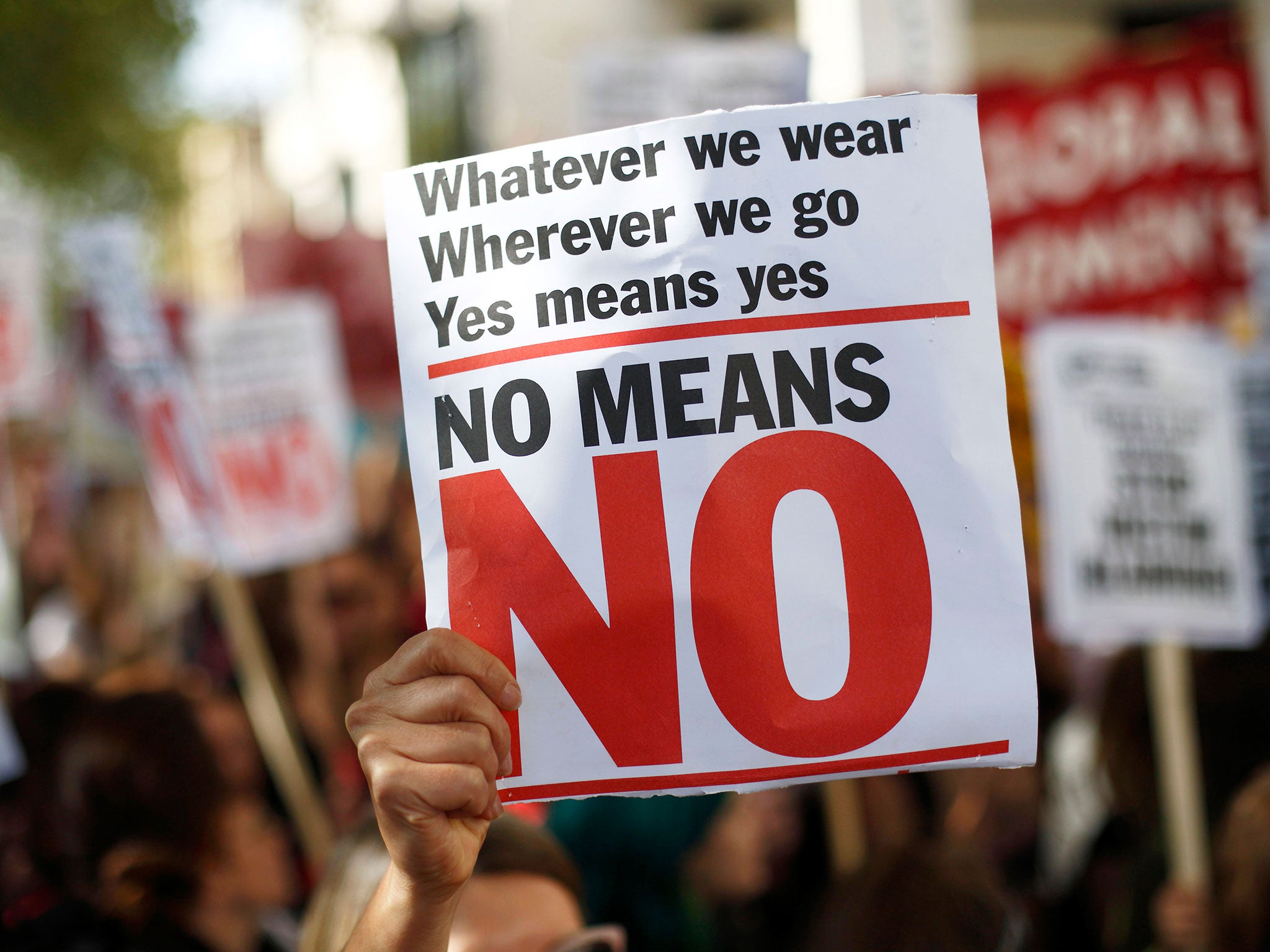Three in five students sexually assaulted or harassed at university, survey finds
'The sad reality is that students are suffering in silence and blaming themselves'

Your support helps us to tell the story
From reproductive rights to climate change to Big Tech, The Independent is on the ground when the story is developing. Whether it's investigating the financials of Elon Musk's pro-Trump PAC or producing our latest documentary, 'The A Word', which shines a light on the American women fighting for reproductive rights, we know how important it is to parse out the facts from the messaging.
At such a critical moment in US history, we need reporters on the ground. Your donation allows us to keep sending journalists to speak to both sides of the story.
The Independent is trusted by Americans across the entire political spectrum. And unlike many other quality news outlets, we choose not to lock Americans out of our reporting and analysis with paywalls. We believe quality journalism should be available to everyone, paid for by those who can afford it.
Your support makes all the difference.More than three in five students have been sexually assaulted or harassed while at university, a new survey suggests.
But only two per cent felt able to report the experience to their university and were then satisfied with the subsequent treatment of their complaint, the survey of nearly 4,500 students and recent graduates reveals.
The poll, carried out by campaign group Revolt Sexual Assault and student website The Student Room, found 50 per cent of respondents had experienced sexual harassment as students.
And more than two fifths (42 per cent) said they experienced sexual assault during their time at university. Groping and unnecessary touching in a sexual manner was the most common experience.
In total, 62 per cent said they had experienced either harassment or assault or both.
Students were most likely to experience sexual assault or harassment on campus in halls (28 per cent), at social events (24 per cent) and in university social spaces like bars and shops (23 per cent).
Eight per cent of female respondents also reported having been raped at university, the research shows.
One survey respondent said: ‘My university failed me entirely when I reported my sexual assault, and it was brushed under the carpet. I didn't bother reporting the second incident.
“I figured out that I had the emotional strength to do one of two things: I could pursue a complaint against my rapist, or I could finish my degree.
“I chose the latter and went for counselling after graduating, but I still have not recovered and I think about it literally every day. I am still so angry.”
Respondents spoke of a ‘normalised’ culture of sexual violence within the university environment – and only 16 per cent said they believed incidences of sexual violence were regularly discussed.
Only half of respondents said they believed there was an understanding of what constitutes consent at their university.
Mhairi Underwood, head of community at The Student Room, said: “This consultation has shown there’s a lack of confidence about what consent means, and on The Student Room, we see young people asking ‘was this rape?’ almost everyday.
“There is a great deal of work to be done around ensuring young people are knowledgeable about what sexual harassment and assault actually are.
“It’s worrying to think there is still not a widely acknowledged truth about what is and isn’t okay.”
Hannah Price, founder of Revolt Sexual Assault, said: “I’ve heard countless stories of sexual violence from brave, incredible students – each of which has been too powerful to forget. Beneath the filters, the life-long effects of these assaults are shockingly apparent.
“The sad reality is the same themes emerge; students are suffering in silence and blaming themselves. They are having an extremely poor student experience and in too many cases being deprived of their education because of sexual violence and the lack of support available to them.”
The campaign group is calling on universities to ensure they have accessible reporting systems, carried out by specially trained and independent staff, to minimise the distress caused to students.
Hareem Ghani, women's officer for the National Union of Students, said: "The figures in this report are horrendous but, sadly, not shocking. But even though it is normalised, it is not acceptable.
"Even though the NUS Women’s campaign has consistently been calling for universities to make this a top priority, it is shamefully clear that nowhere near enough progress has been made."
A Universities UK spokesperson said: “Universities UK is committed to ensuring that all students and staff have a safe and positive experience in higher education and all universities have a duty to provide that outcome.
“Our taskforce report recommended that universities develop effective procedures and centralised reporting systems for dealing with incidents of sexual harassment.
“While follow-up work from the taskforce shows that universities and students’ unions have developed a range of strategies including centralised reporting systems to address harassment, there is clearly further work to do.
“University leaders should ensure that policies and activities bring about real change."
Join our commenting forum
Join thought-provoking conversations, follow other Independent readers and see their replies
Comments